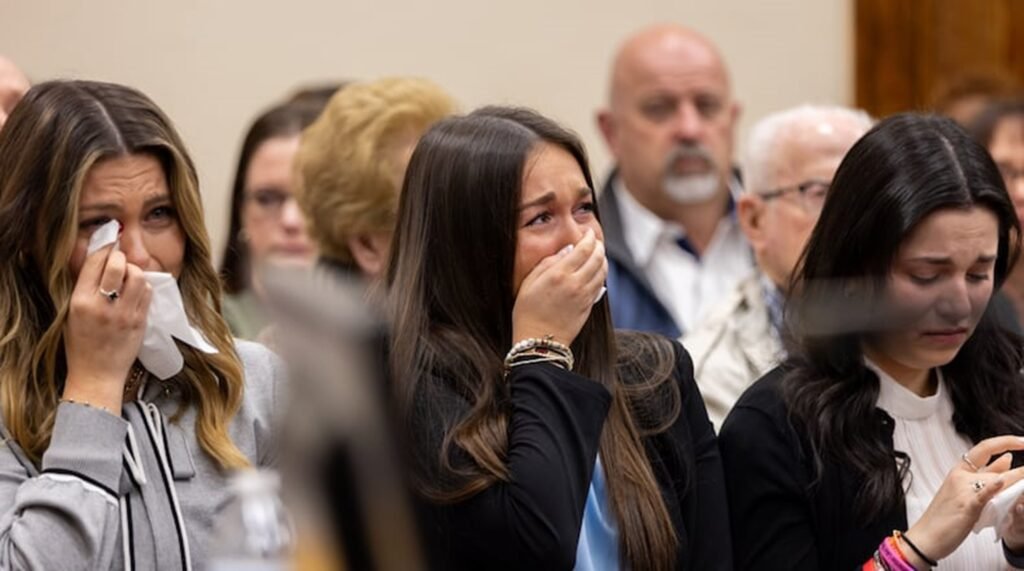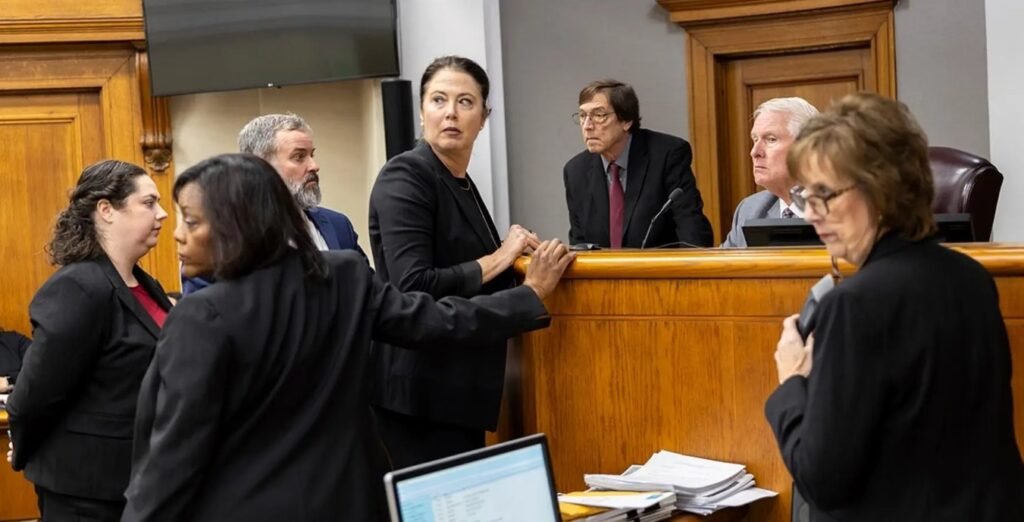Joey Keenan ~ November 20th, 2024
In a case that has captured national attention, 26-year-old José Antonio Ibarra was found guilty this morning in an Athens, Georgia courtroom for the brutal murder of 22-year-old University of Georgia nursing student, Laken Riley. The verdict brings an end to a harrowing legal process that began in February 2024, when Riley’s life was cut short during what should have been a routine jog on campus.
Ibarra, a Venezuelan national who entered the United States illegally in 2022, was detained by Customs and Border Protection agents shortly after his arrival. Despite this, he was released under the Biden Administration’s immigration policies while his court case was pending. In the 17 months between his release and the murder, Ibarra had multiple encounters with law enforcement. On September 14, 2023, he was arrested in New York City and charged with acting in a manner that endangered a child and committing vehicle license violations. Merely two weeks later, he traveled to Atlanta with his female roommate, Rosbeli Flores-Bello, reportedly in search of work, taking up residence in his brother Diego’s apartment.

The events leading to Riley’s murder unfolded on the morning of February 22, 2024. Riley had left her apartment for a morning jog around 9:00 a.m., unaware of the danger that awaited her along a wooded trail on the UGA campus. Evidence presented during the trial revealed that Ibarra assaulted her, attempted to remove her clothes, and repeatedly prevented her from calling for help. When Riley resisted, Ibarra brutally struck her with a rock and strangled her, leaving her lifeless.
Prosecutors used an array of evidence to establish Ibarra’s guilt. GPS data from Riley’s smartwatch placed her and Ibarra mere feet apart during the attack and even pinpointed the exact moment her heart stopped. Additional evidence linked Ibarra to the crime scene, including cellphone activity, social media posts, and DNA analysis. An FBI agent testified that Ibarra was seen discarding a jacket in a dumpster; the same jacket tested positive for Riley’s DNA. The chilling details presented during the trial had a profound emotional impact on Riley’s friends and family, particularly her mother, who attended every hearing to see justice served.

Defense attorney Dustin Kirby argued that the evidence against Ibarra was circumstantial, asserting, “The evidence in this case is very good that Laken Riley was murdered. The evidence that Jose Ibarra killed Laken Riley is circumstantial.” However, Judge H. Patrick Haggard found this argument unconvincing and only required 20 minutes reviewing overwhelming evidence before finding Ibarra guilty of all charges. He was sentenced to life in prison without the possibility of parole, a decision the prosecution had firmly advocated.

This case has reignited fierce debate over U.S. immigration policy, with critics pointing to Ibarra’s history as an example of the alleged risks posed by what they describe as lax border enforcement. Advocates for stricter immigration controls have argued that the tragedy could have been prevented if more robust measures were in place to vet and monitor individuals entering the country.
For the family and friends of Laken Riley, the verdict marks a measure of justice but does little to heal the profound loss of a bright young woman with aspirations of making a difference in the nursing field. Her death serves as a sobering reminder of the fragility of life and the need for vigilance in addressing systemic issues that impact public safety.

















